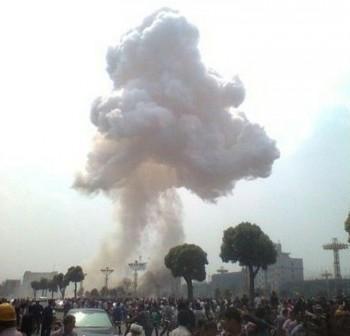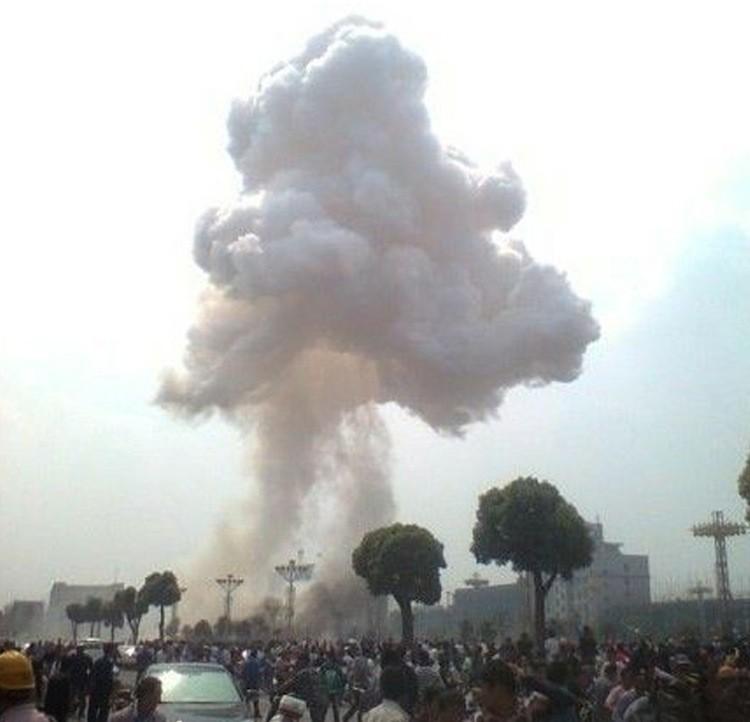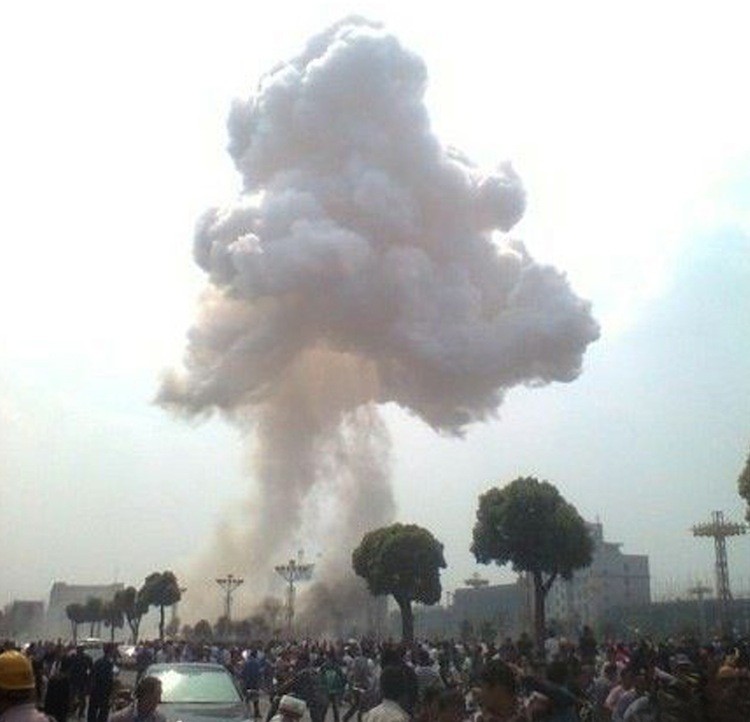Jiangxi Bombings Prompt Authorities to Compensate Uprooted Petitioners
Several Chinese homeowners who were relocated after seeing their homes demolished for government projects were finally compensated by officials just days after one of their own bombed government offices in Fuzhou city, Jiangxi province.

A mushroom cloud is seen after a coordinated explosion occurred at the Linjiang district government office in Fuzhou city, east China's Jiangxi province, on May 26. STR/AFP/Getty Images
|Updated:





